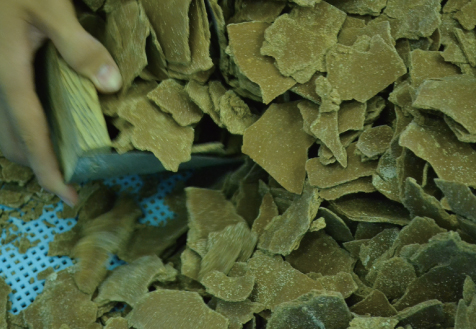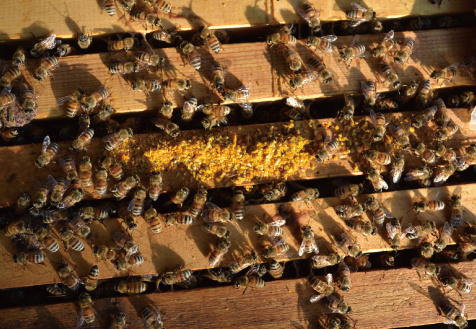BREWING SAKE & SDGs
BREWING SAKE & SDGs
Create an environment where bees can produce honey from by-products of the brewing process!
Konotomo Sake Brewery Co.,Ltd.
North Hyogo Sake Brewers Association
Achievement goal


Usually, the large amount of 'sake-kasu' that is always produced in the sake brewing process becomes industrial waste if it remains unsold. In our brewery, sake lees are used as board lees and pickle lees, while the unprocessed sake lees from ginjo sake are used in shochu production. The method is to add the ginjo lees during the shochu making process to dissolve and saccharify them, as well as to ferment them to increase the shochu making rate.
The lees from shochu are also very rich in amino acids, and in 2010 the lees were transferred to the Osaka Prefectural Engei Senior High School, where they are used as part of the food for bee keeping. This initiative was initiated to help break down the situation in the beekeeping industry in Japan, where the horticultural industry is unable to supply the bee swarms it needs, starting with the mass disappearance of honey bees, which is a problem worldwide. As a countermeasure to the shortage of bees, it is particularly important to develop healthy bees, and the beekeeping industry usually uses 'substitute pollen' during periods when flowers are scarce. However, there is no good 'substitute pollen' in Japan, so beekeepers rely on expensive imports. The Osaka Prefectural Engei Senior High School has therefore produced a purely domestic 'substitute pollen'. Shochu lees, which would otherwise have been discarded, are used to nurture bees and play a part in creating a habitable environment.
